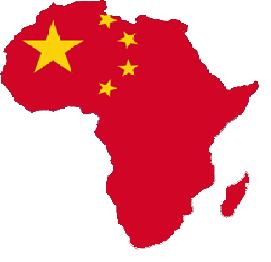Anti-Chinese sentiment on the rise in Africa
By Ed Arthur
 Anti-Chinese sentiment in Africa has come in many forms, including vandalism against Chinese-owned businesses and propaganda portraying Chinese migrants as “invaders.” This may seem like a prima facie case of xenophobia, but the root of the problem goes much deeper.
Anti-Chinese sentiment in Africa has come in many forms, including vandalism against Chinese-owned businesses and propaganda portraying Chinese migrants as “invaders.” This may seem like a prima facie case of xenophobia, but the root of the problem goes much deeper.
Chinese migrants in African countries have continuously isolated themselves from the people therein. Their self-imposed isolation is said to be a result of language and cultural barriers that render assimilation unfeasible. But in the eyes of citizens in many African countries, such reclusive tendencies are seen as an attitude of arrogance, especially in regard to employment.
Chinese migrants in Africa do not extend employment to the African communities where they operate, which has led the locals therein to perceive them as “outsiders” bent on exploiting African markets. Since many African communities are plagued by high unemployment, their inhabitants often look to Chinese businesses for jobs. But in deciding not to hire locals, Chinese businesses shun job-seekers in African communities, stirring up anti-Chinese sentiment in the process.
Most Chinese migrants in Africa are temporary workers, contracted to work in the continent for one to three years. Since it would take more time and effort to accommodate new hires who do not understand their language, many Chinese businesses believe it is more productive to stick with members of their own culture. But many African job-seekers are not convinced that language and cultural differences justify their dismissal by Chinese employers.
Anti-Chinese sentiment have also stemmed from many African enterprises who consider Chinese-owned business to be competition. Some African enterprises have expressed disapproval of Chinese-made “African” products that detract from their very own businesses. For example, it is not uncommon for Chinese businesses in Africa to manufacture African clothing and other traditional African goods which, as a result, gives them a share of the market. To the chagrin of African enterprises, Chinese migrants are becoming more and more ingrained within African commerce.
The influx of Chinese migrants to Africa has increased considerably in recent years. In 2009, the South African Institute of International Affairs (SAIA) estimated the number of Chinese migrants currently living in Africa to be somewhere between 580,000 and 800,000. These numbers are said to have increased since; journalist Howard French, in his 2014 publication China’s Second Continent, estimates that as many as one million Chinese migrants moved to Africa in the past two decades.
African nations are not the only ones to see a heightened influx of Chinese migrants. The United States has received more than 2.2 million Chinese migrants between 1990 and 2013—the most of any nation worldwide. In 2009, the total number of Chinese migrants living in France, Japan, and Canada increased to 400,000, 600,000 and 900,000, respectively.


